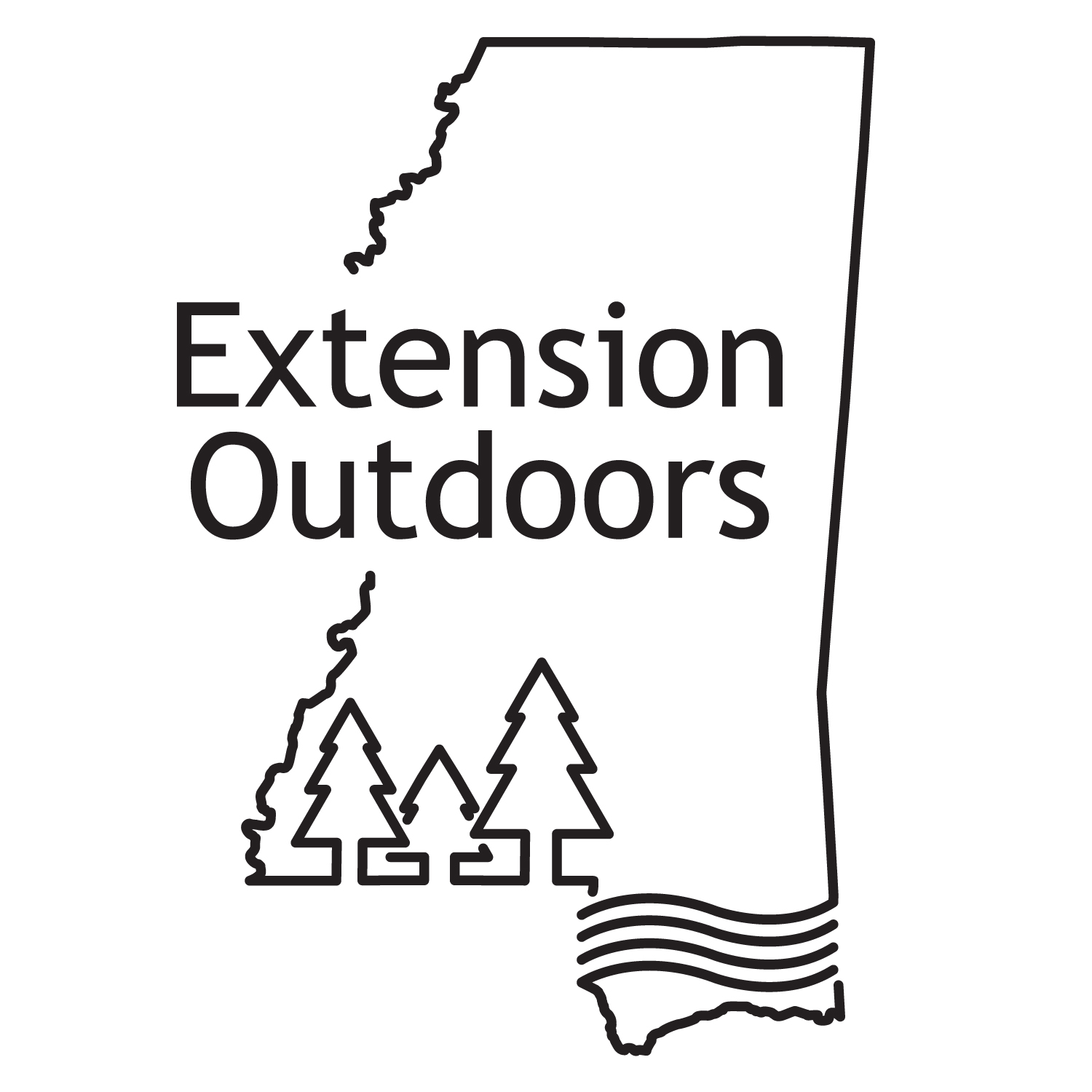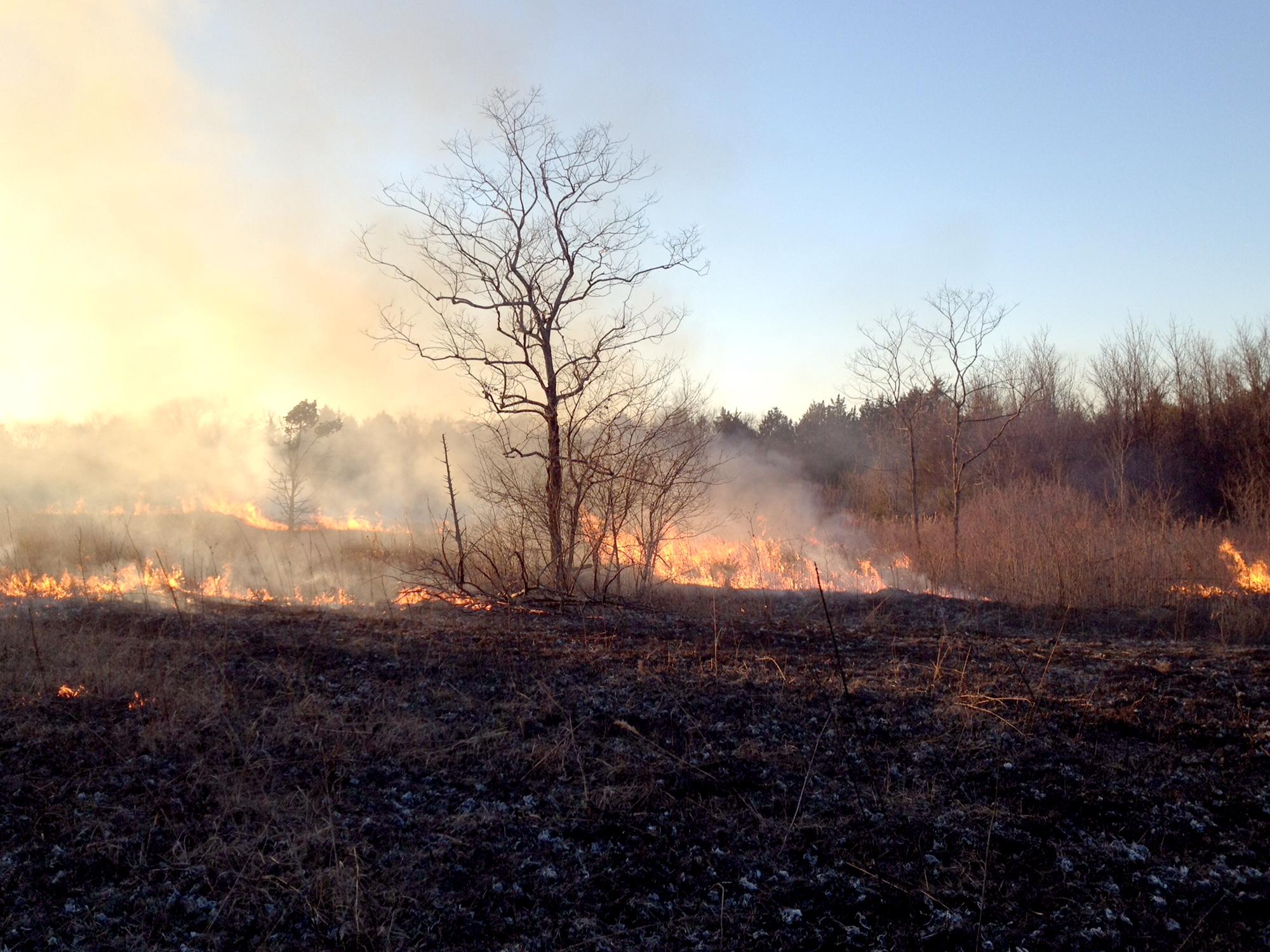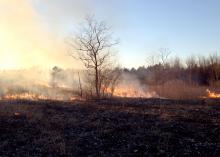Information Possibly Outdated
The information presented on this page was originally released on December 23, 2016. It may not be outdated, but please search our site for more current information. If you plan to quote or reference this information in a publication, please check with the Extension specialist or author before proceeding.
Consider conditions, respect burn bans
STARKVILLE, Miss. -- Burn bans such as the ones recently imposed in Mississippi are not unusual, especially in the fall when dry leaves are abundant.
The Mississippi Forestry Commission will issue a burn ban, typically at the request of a county board of supervisors. Once approved, the ban prohibits all outdoor burning until local authorities deem that conditions have improved enough to allow safe and responsible burning.
During a ban, no outdoor burning of any kind is permitted. Campfires, bonfires, burn barrels, debris burning, fireworks, fire pits with covers and other fire-related activities are prohibited. Any open flame capable of producing embers qualifies as burning. Embers are dense, combustible objects that may only smolder initially, but wind can fuel them into wildfires.
Although many weather variables contribute to accidental and out-of-control fires, the most dangerous factors are wind and wind direction. Wind is primarily oxygen, just like fire. Add a few more oxygen molecules into the mix, and you have combustion. Ill-disposed cigarettes, matches, lit charcoal and smoldering campfire wood almost certainly will reignite when exposed to wind gusts or strong, consistent wind. More often than not, wind is the primary cause of negligent fires.
Low relative humidity, which is a measure of the moisture content in the air, is also a key ingredient. It is also a typical symptom of high-pressure days with little recent precipitation and wind patterns changing from a fluctuating southern direction to a consistent north or northwest. You should always be aware of these conditions when participating in outdoor activities during cooler, drier months. They are prime ingredients in the recipe for wildfire.
Acknowledging and heeding the professional and expert opinions of your local authorities and forestry commission is paramount, just as our safety is to them. Strictly following their instructions will not only keep you safe and legal, but may also save you some ridicule.
Violating a burn ban can embarrass you in front of local authorities, friends and neighbors. However, it is also a misdemeanor offense that carries a fine of $100 to $500, plus court costs and fees. Fines are enforced by your local sheriff’s department. Fires allowed during bans include propane/gas grills, propane/gas heaters and charcoal grills. But always make sure charcoal briquettes are spent before dumping them.
When a burn ban is enacted, there is generally a designated date by which officials predict weather conditions should improve and allow lifting of the prohibition. Bans usually expire at midnight on the designated date. After the expiration, you may resume normal activity and continue to burn as you choose.
Always use caution with fire. Even when no ban is in place, burning can still be risky. There may be a transition time soon after the ban is lifted when conditions are not entirely favorable. If it is windy (10+ mph) and seems dry outside, check the Mississippi Forestry Commission’s website for active bans in your county before you decide to burn.
The commission’s burn ban website is at http://www.mfc.ms.gov/burn-bans/.

Editor’s Note: Extension Outdoors is a column authored by several different experts in the Mississippi State University Extension Service.








